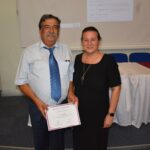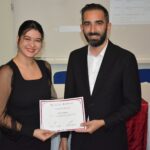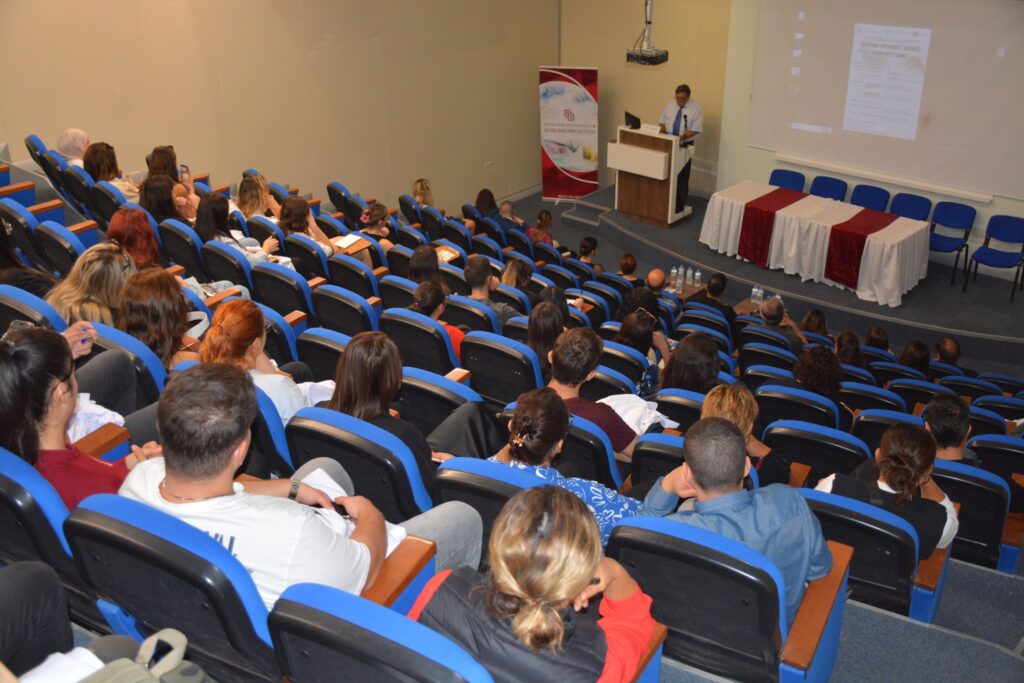
“Diabetes”, which draws attention with its frequency in the TRNC, was discussed in every aspect at the symposium organized in cooperation with Near East University DESAM Research Institute, Near East University Faculty of Health Sciences, and Turkish Cypriot Diabetes Association.
Diabetes, which is a common health problem worldwide and seriously affects the quality of life, continues to increase its prevalence due to obesity and lack of physical activity. Diabetes shows direct symptoms such as excessive thirst, frequent urination, weight loss and fatigue. The main risk it poses is that it can cause serious complications such as heart disease, kidney problems, eye problems and nerve damage. Additionally, long-term effects of diabetes include foot problems, skin infections and circulation problems.
According to World Health Organization data, 422 million adults in the world live with diabetes and 1.6 million people die every year due to diabetes-related complications. The fact that 34.4 percent of those who participated in the “Hypertension, Diabetes and Kidney Diseases Screening” conducted by the TRNC Ministry of Health between 2022 and 2023 had diabetes, providing important data about the prevalence of this disease in the TRNC.
In the symposium, organized in cooperation with the Near East University DESAM Research Institute, Near East University Faculty of Health Sciences and the Turkish Cypriot Diabetes Association, “diabetes” was discussed in every aspect by the experts.
The symposium, which was held with the intense participation of specialist medical doctors, academicians and students and was open to the public free of charge, was attended by the President of the Turkish Cypriot Diabetes Association, Taner Morris, and the Member of the Turkish Cypriot Diabetes Association, Gizem Oymacı, as invited speakers. The opening speeches were made by DESAM Research Institute Director Assoc. Prof. Dr. Cenk Serhan Özverel and Near East University Faculty of Health Sciences Dean Prof. Dr. Adile Öniz Özgören At the symposium held by Near East University Faculty of Health Sciences, Assoc. Prof. Dr. Mustafa Hoca, Dr. Müjgan Kuşi, Assist. Prof. Dr. Tuba Yerlikaya and Assist. Prof. Dr. Betül Mammadov also made presentations. At the symposium, topics related to the emergence of diabetes, its current course and its awareness in the TRNC were discussed.
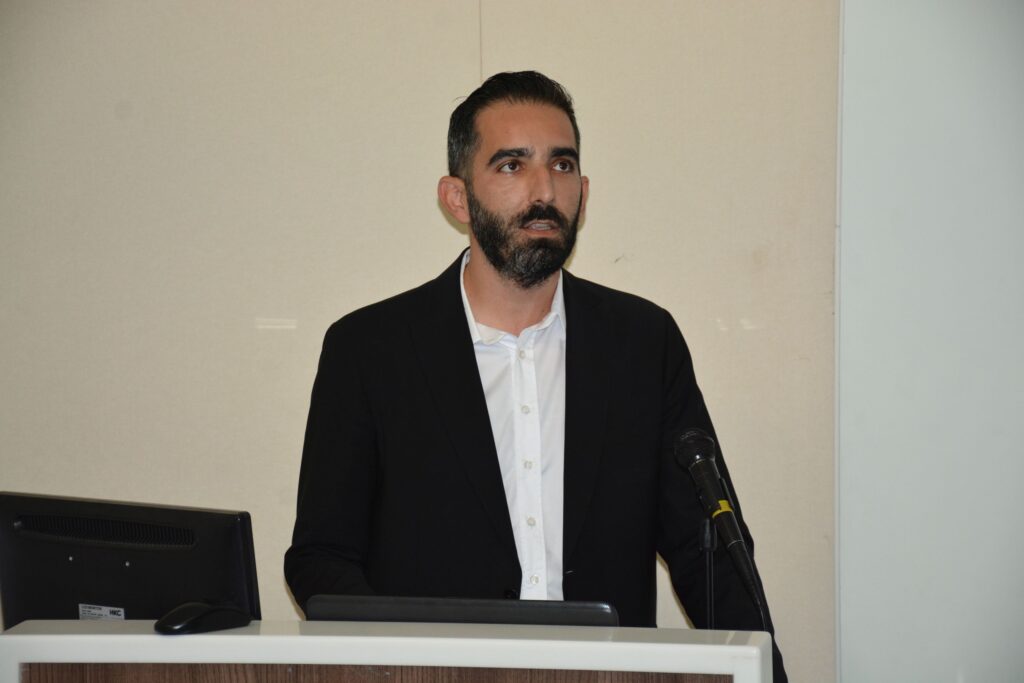
Assoc. Prof. Dr. Cenk Serhan Özverel: “We continue our studies aiming to contribute to public health with our qualified researchers.”
Near East University DESAM Research Institute Director Assoc. Prof. Dr. Cenk Serhan Özverel in his speech at the opening of the symposium emphasized that while providing information about the scientific studies they carried out, they also took advantage of every opportunity to contact the society and organized many events in cooperation with non-governmental organizations.
Assoc. Prof. Dr. Cenk Serhan Özverel said that DESAM Research Institute carries out studies in many areas that closely concern the society with its qualified researchers and that diabetes, which is common and greatly affects the quality of life, is one of these areas. Assoc. Prof. Dr. Özverel said, “We continue our studies aiming to contribute to public health with our qualified researchers.”
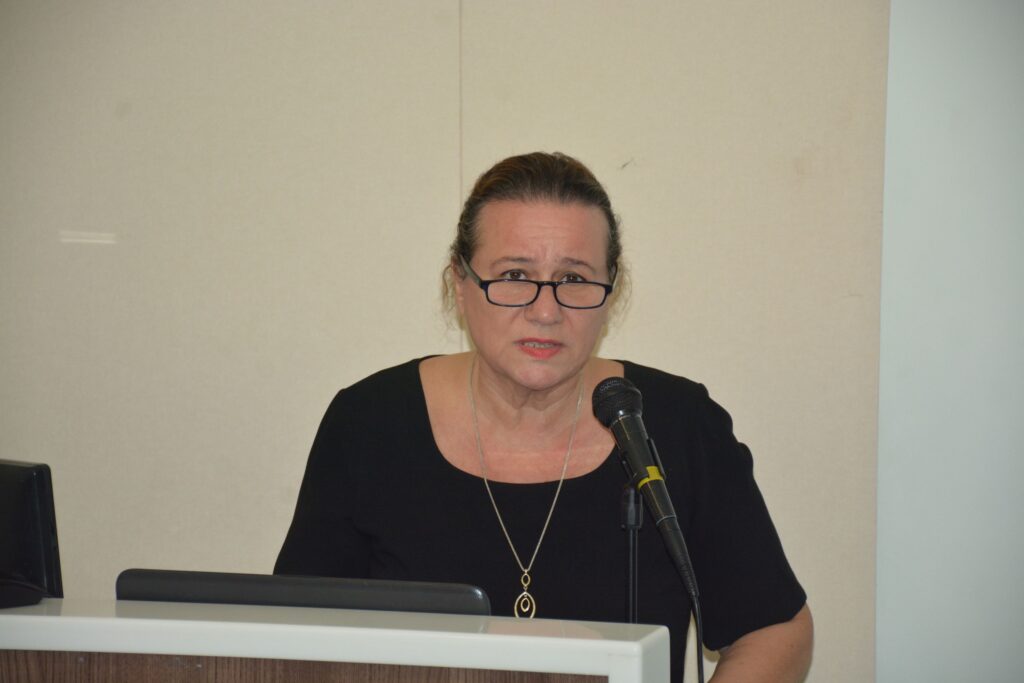
Prof. Dr. Adile Öniz Özgören: “Collaboration of all areas is essential for the prevention and correct treatment of diabetes.”
Speaking at the opening of the symposium, Near East University Faculty of Health Sciences Dean Prof. Dr. Adile Öniz Özgören said, “Cooperation of all areas is essential for the prevention and correct treatment of diabetes. Starting education within the family and at a young age will also increase social awareness.” Stating that World Diabetes Day is recognized in more than 160 countries and regions and is celebrated to raise awareness about diabetes, Prof. Dr. Özgören emphasized that, as Near East University Faculty of Health Sciences, they also carry out many studies in this field.
Referring to the importance of Mediterranean type nutrition in preventing diabetes, Prof. Dr. Adile Öniz Özgören said, “We are carrying out many studies to adapt and popularize the Mediterranean type of nutrition model to the island.”
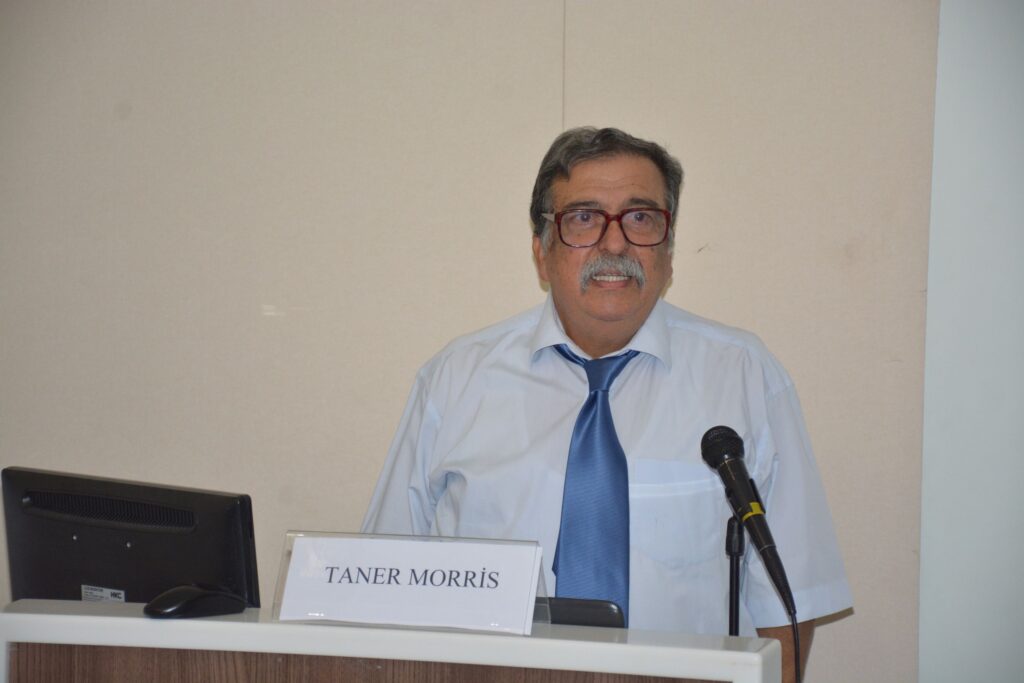
Taner Morris: “The rate of diabetes in the Mediterranean islands is one and a half times higher than in Turkey and twice as high as in the world.”
Emphasizing that diabetes stands out as the most serious health-threatening problem in our country, Turkish Cypriot Diabetes Association President Taner Morris reminded that diabetes is a preventable disease. “It is possible to prevent or delay diabetes with lifestyle changes that focus on healthy nutrition and physical activity,” Morris said.
Stating that the Mediterranean islands are among the regions with the highest diabetes rate in the world, Taner Morris said that this rate is 1.5 times higher than Turkey’s average and more than twice the world average.
Taner Morris stated that although Cyprus has a unique and very healthy cuisine, it is not preferred by the younger generation and said, “In this region, in the middle of the Mediterranean, where Mediterranean cuisine, one of the healthiest cuisines in the world, should be the most widespread, the rate of diabetes is very high and needs to be addressed urgently.”
Sharing information about the work of the association, Taner Morris included some data about diabetes. Taner Morris, who shared some highlights of the obesity research conducted by the Turkish Cypriot Diabetes Association with the participants, said, “In our country, the obesity problem, which also triggers diabetes, is growing like an avalanche. “This is a public problem and everyone should try to take care of this problem.”

Dietitian Gizem Oymacı, member of the Turkish Cypriot Diabetes Association, also gave a speech titled “Living with Diabetes” at the symposium. While Oymacı included important details about the lives of individuals with diabetes in her speech, she said that she has been a diabetic since the age of 11. Emphasizing that family support, conscious nutrition and physical activities are of great importance in the lives of diabetic patients, Oymacı said, “Type 1 diabetes is generally related to genetic factors. Therefore, it can also occur at a young age. As one of these unlucky people, I have been suffering from diabetes since the age of 11.”
Emphasizing that this situation was decisive for her becoming a dietitian, Oymacı said, “The most important way to deal with diabetes is to be conscious about it. It is especially important to establish correct eating habits.”
